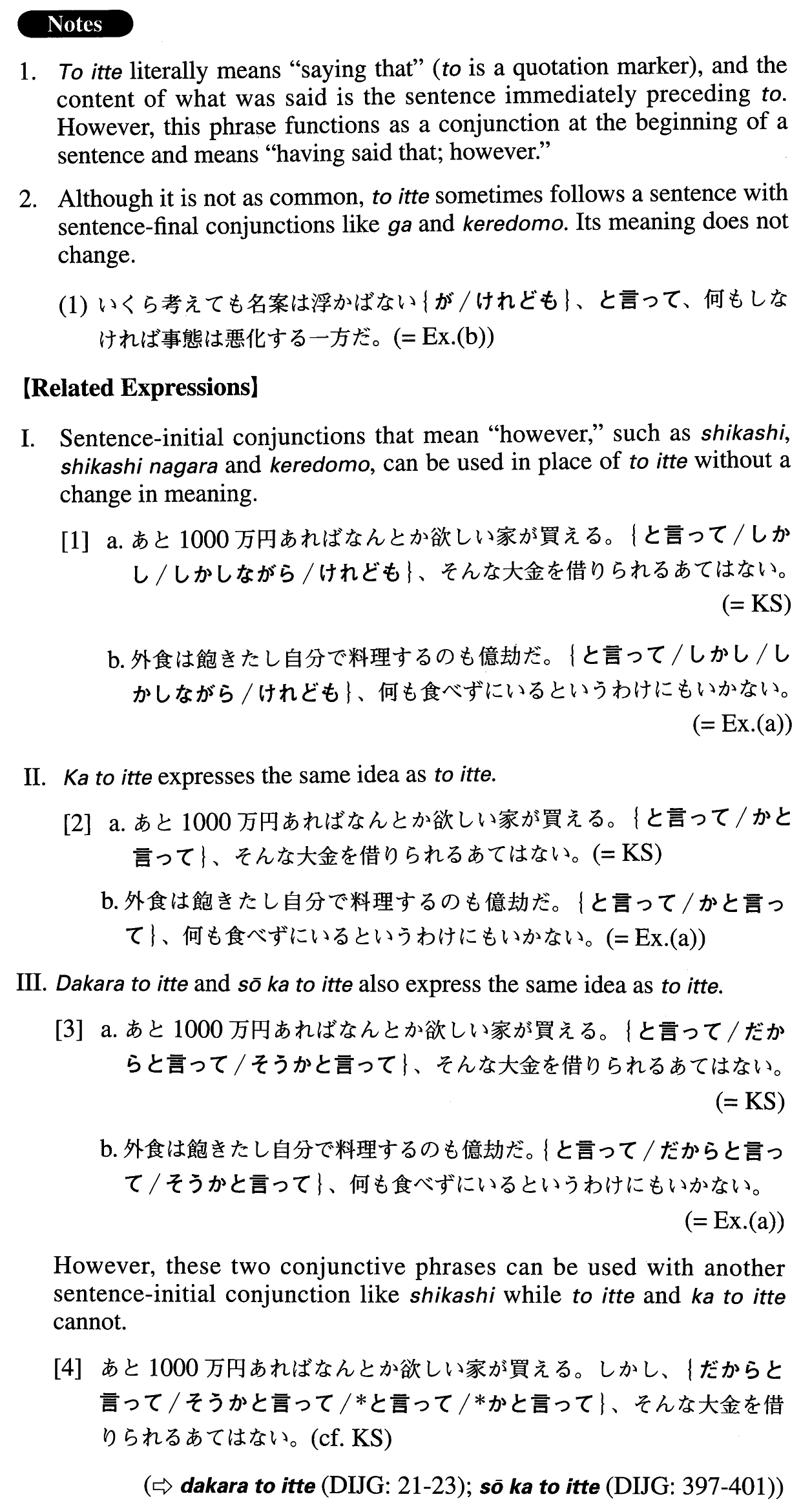
ホーム → 文法 → DoJG main menu → 上級編 → Advanced Page 635
Conjunction
| A conjunction used at the beginning of a sentence to convey the idea of "however". | However; but; having said that |
| 【Related Expression: しかし; しかしながら; けれども; かといって; だからといって; そうかといって】 | |
(ks). あと1000万円あればなんとか欲しい家が買える。と言って、そんな大金を借りられるあてはない。
If we had another ten million yen, we could manage to buy the house we want. Having said that, we don't know how we could borrow that much money.
| Sentence1。 | と言って、Sentence2。 | |
| 時間がない。と言って、この仕事をそのままにしておくことはできない。 | I don't have time. But, I can't leave this job just as it is |
(a). 外食は飽きたし自分で料理するのも億劫だ。と言って、何も食べずにいるというわけにもいかない。
I've gotten tired of eating out, and cooking for myself is tiresome, too. But, I have to eat something (literally: I can't just not eat).
(b). いくら考えても名案は浮かばない。と言って、何もしなければ事態は悪化する一方だ。
No matter how hard I think, I cannot come up with a good idea. However, the situation will get only worse if I don't do anything about it.
(c). 彼女と別れるのは絶対いやだ。と言って、妻と離婚する勇気もない。
I definitely don't want to leave my girlfriend. Having said that, I don't have the courage to divorce my wife, either.
(d). 最近は少し運動するとすぐ疲れてしまう。と言って、何もしないと体が衰えるばかりなので何かしなければならない。
These days I get tired quickly after doing a little exercise. However, I have to do something because if I don't do anything, l'll only get weaker.
(e). アメリカで自分の能力をためすのも面白いかもしれない。と言って、英語ができなければどうしようもないが。
It might be interesting for you to try out your skills in America. But, it won't do any good if you cannot speak English.
